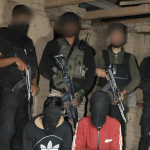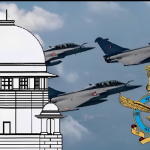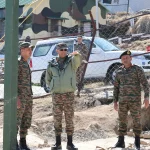A suspected drone strike during a volleyball match in Azam Warsak, South Waziristan, on Tuesday night left 22 civilians injured, including seven minors, intensifying public outrage over Pakistan’s continued silence on unclaimed aerial attacks in its tribal belt.
The strike, which occurred around 8 pm, targeted residents aged between 13 and 60. A 13-year-old boy and an adult male were critically injured and shifted to a tertiary care facility, while several others sustained severe wounds. Witnesses described scenes of chaos and panic following the blast and subsequent gunfire.
This attack follows a similar strike on May 19 in Hurmuz village, North Waziristan, which killed four children. That incident led to an eight-day protest sit-in at Mir Ali town, where locals accused security forces of targeting civilians under the guise of counter-terrorism operations. The military’s media wing, Inter-Services Public Relations (ISPR), denied involvement and blamed the outlawed Tehreek-i-Taliban Pakistan (TTP) instead, but did not provide evidence.
Tuesday’s strike is part of a growing pattern of drone attacks in Pakistan’s northwestern Khyber Pakhtunkhwa province. In March 2025, 11 civilians were killed in a drone strike in Mardan, while a similar attack in Upper South Waziristan in September 2024 resulted in one death and three injuries. None of these incidents have been officially acknowledged by the government.
Pakistan has a long and contentious history with drone warfare. While Islamabad has fiercely condemned US drone strikes between 2004 and 2018—often highlighting the civilian toll—it has itself reportedly employed armed quadcopters against suspected militants since 2020, frequently without addressing collateral damage or civilian casualties.
The Human Rights Commission of Pakistan has repeatedly called for independent investigations into both foreign and domestic drone strikes, citing grave violations of due process and basic human rights.
Islamabad’s continued silence, especially regarding attacks on civilians, is fueling deep mistrust in the tribal regions. “If drones keep targeting Waziristan, how do we answer our people?” an elder asked during protests in Mir Ali. The sentiment was echoed once again after Tuesday’s attack, as residents mourned injuries to children and demanded transparency and justice in a region long battered by militancy and military operations.













